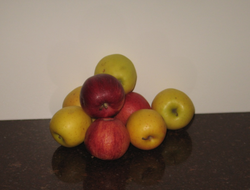Your Kidneys: not just a waste product filtration system
Published: August 02, 2019
Nutrients from the food and beverages you consume, once digested and absorbed into your body, are used in 1000s of metabolic processes.
Each of these metabolic processes produces metabolites which in some instances can be toxic when levels in your body becomes excessive.
Ammonia, a metabolite of amino acid metabolism is one example. Sodium, potassium and glucose, all essential nutrients, may need to be removed from your body when blood concentration levels become too high.
A major function of your kidneys is as a filtration unit, filtering out potentially harmful metabolites such as ammonia and excess nutrients. At the same time your kidneys retain essential nutrients such as calcium, sodium, and potassium (and other electrolytes), and water according to your body’s requirements.
You have two kidneys which are situated towards the back and centrally in your abdominal cavity. Each kidney is about 10 cm long and is connencted to your circulatory system by a renal artery. Blood is returned to your circulatory system via renal veins (1 per kidney).
Although your kidneys only contribute about 0.5% of your body weight, they have a significant role in maintaining homeostasis in your body.
Within your kidneys this filtration system is comprised of per kidney:
- nephrons (approximately 1-1.5 million)
- a Bowman’s capsule
- proximal convoluted tubule
- loop of Henle
- distal convoluted tubule
- collecting duct which is connected to your ureter which joins your bladder
Capillary networks, which connect kidney tissue to your renal arteries and veins, surround each part of your kidney system. This allows for reabsorption of useful and essential nutrients, such as proteins, amino acids and glucose from the filtrate into your blood stream as the filtrate passes through the tubules.
Other materials are secreted from your blood stream into your tubules in the urine formation process. Click on the kidney diagram to learn more.
Waste products are carried in your blood to your kidneys. Your Bowman’s capsule and glomerulus may contain about 20-25% of your total blood volume at any time. About 1600 L of blood pumped by your heart is filtered through your kidneys each day.
Of the approximately 180 L of fluid produced in the filtering process only about 1.5 L ends up as urine each day.
In addition to filtering your blood your kidneys have other functions:..link to the full article to learn more.
References
1.
Wilkens, K.G.(2004). Medical nutrition therapy for Renal disorders. In Mann. K. & Escott-Stump, S. (Eds.)(2004). Krause's Food, Nutrition & Diet Therapy. (11th Ed.) Elsevier
2.
Whitney, E. & Rady Rolfes, S. (2005). Understanding Nutrition. Belmont, CA: Thomson Wadsworth
3.
Gropper, S.S., Smith, J.L. & Groff, J.L. (2005). Advanced Nutrition and Human Metabolism (4thEd.). Belmont, CA: Thomson Wadsworth.
4.
CSPI September 2015, March 2014

